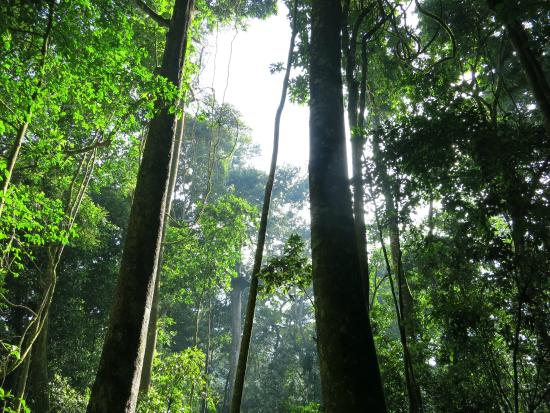The huff and puff of President Yoweri Museveni over what should happen to Mabira Central Forestry reserve will take up considerable ink and air play on FM stations. The last time the President dragged the country down this road- it ended with the death of three Ugandans and an Asian student.
While the President needs our support on a number of positive policies- like the speeding up of power production, increasing the availability of mortgages to new homeowners and cracking down on corruption- Ugandans should not be shy about telling him off when he becomes the victim of his own excesses.
This duty- to restrain the Executive has traditionally been equally entrusted to Parliament, the Judiciary and civil society and enshrined in the constitution.
Unfortunately even if it is the very same excesses of the Executive that have in the past plunged Uganda into crisis (and in his own account led Museveni to wage a bush war) institutional restraints have remained weak- and Presidential power still capable of wrecking havoc.
Ugandans must remember that encouraging an all powerful “big man” in State House has had grave consequences for this country. Properly moderating Executive power is often not just a question of national security but a statement of how far Ugandans have moved away from when Idi Amin imposed decrees to keep women “decently” dressed or plunged the country in needless wars.
In this respect the Mabira giveaway has always been more than environmental issues and reach beyond what the National Forestry Authority and Environmental Management Authority have said should have been enough for the President to reject its degazettement.

When Ugandans took to the streets to protest attempts to give the forest to a foreign investor- they did so to reject the brazen use of Executive privilege. In much of the discourse leading up to the standoff on April 12 2007- to which the Executive has apparently turned a blind eye- many Ugandans said Mehta-Museveni deal was dishonest at best and anti-Ugandan at worst.
A younger Museveni who, quoting Franz Fanon in his university thesis said violence was “the highest form of political struggle”, would have recognized that Mabira was not a law and order problem but a rejection of the oppressive position he alone had adopted in the cabinet.
Unfortunately- Uganda cannot wait for Mr. Museveni to renew his faith against oppression even his own. His statement to younger members of the National Resistance Movement that “those opposing industrialization, apart from being enemies of NRM, are, in particular, enemies of the youth because they are the ones who need these jobs” is patently false and in fact may be willfully misleading.
Good policies create jobs bad policies don’t and it is not even a question of political loyalties but a science in itself. That is why government hires experts who including the Finance Minister Dr Ezra Suruma have stood against the Mabira decision. Why would the NRM accept Museveni’s version of events when many educated Ugandans earning their living advising the government have said no to Mabira?
It is certainly not because they are convinced about the current argument for so called “industrialization” which all Ugandans, especially the professional corps in the country want. No Ugandan does not want development.
If NRM eventually does accept the Mabira giveaway it is because the Executive faces no limits and uses its weight to bully other organs of the government not because the President has made a brilliant argument on industrialization. There are many examples of this debilitating trait that have bedeviled many occupants of State House including the past Presidents of Uganda and their henchman where one man talks and no one answers back.
Mabira offers ordinary Ugandans a chance to stand up to the lies and a policy of arms twisting by the Executive and simply say no to Presidential excesses presented as false philosophy for progress and here is why.
By saying no to Mabira through lawful protests- Ugandans send a clear message that no President should unconscionably use his status and privilege to go against the desire of ordinary citizens arrived at through their own institutions.
It is a message that applies to other Presidential excesses now and in the future and an investment in moderation of Executive power. Already three Ugandans have died for Mabira.
It is also a message that support for the use of Executive power is dependant not just on political association with the Executive itself but common consensus among institutions that exercise political authority on behalf of the public good.
Finally it is a message that friends of Uganda, including the Mehta family and others must invest in a more stable and collegial political process which protects even the Executive from itself. A more serious job for the young legislators would be to pass a law that allows Ugandans a share in any new investments- that way no single institution especially an over pampered Executive can use the promise of new jobs to rob the country of its god-given right to determine its own destiny.










